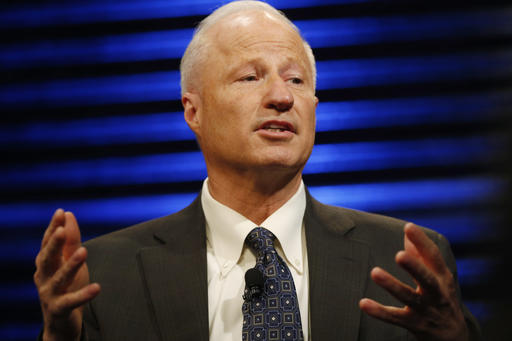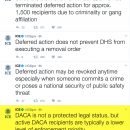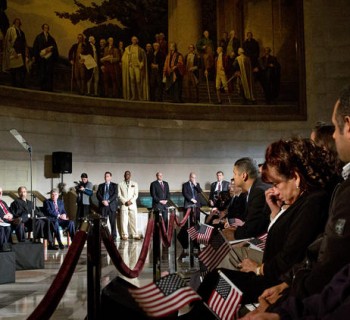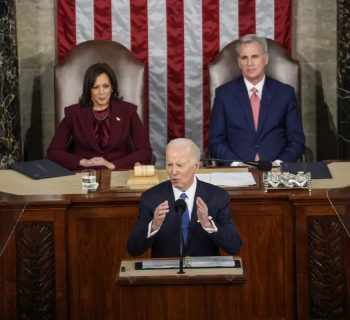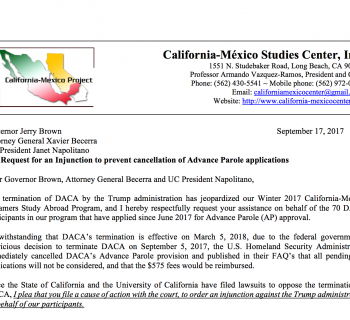"It's so important to recognize that young people who were brought here as children, who grew up here, went to school here, and who often know of no other country, be allowed to legally remain in the U.S.,” Coffman said in a statement. “Let's give them a chance to achieve the American dream through work, education or military service, and to help us together build a stronger America."
By: J
WASHINGTON, D.C. | Rep. Mike Coffman, R-Aurora, is co-sponsoring a heavily Republican-backed bill which would provide a path to citizenship for undocumented immigrants brought to the United States as children.
The Recognizing America’s Children Act (RAC) was introduced Friday, March 10th, 2017 by Florida Rep. Carlos Curbelo, R-Miami, and 6th Congressional District Rep. Coffman, who said in a phone call Friday afternoon to the Aurora Sentinel that the bill also serves as a signal to the White House and President Donald Trump’s administration that “Republicans, not just Democrats” support actions that would afford undocumented immigrants a chance to achieve permanent, legal residency status.
The measure parallels the Obama Administration goals of allowing residents dubbed “DREAMers” to remain in the United States through the previous, failed, Development, Relief, and Education for Alien Minors Act. Obama created the Deferred Action for Childhood Arrivals, DACA, immigration policy in 2012, allowing some undocumented immigrants to avoid deportation.
Coffman has previously supported the intent of DACA.
According to a release sent Friday, the bill provides immigrants who’ve been vetted by the Department of Homeland Security with three pathways to citizenship: higher education, service in the armed forces or work authorization.
“It’s so important to recognize that young people who were brought here as children, who grew up here, went to school here, and who often know of no other country, be allowed to legally remain in the U.S.,” Coffman said in a statement. “Let’s give them a chance to achieve the American dream through work, education or military service, and to help us together build a stronger America.”
Previously, Coffman had supported a similar measure allowing for a path to citizenship for DREAMers who enlisted in the military. This measure would expand citizenship options.
“They have to do something affirmative to have this path, but it gives them a way to stay in this country legally,” Coffman added in a phone call Friday.
But the road to becoming a citizen wouldn’t be fast.
Following a five-year conditional status, immigrants would then be able to reapply for another five-year conditional status. At the end of that term, immigrants who maintain requirements as laid out in the bill would be able to apply for permanent legal residence.
According to details of the bill, qualifying undocumented immigrants would be those who have obtained a high school diploma or equivalent; who arrived in the U.S. before the age of 16, before Jan. 1, 2012; who maintained residency in the U.S. for at the previous five consecutive years; and who demonstrated “good moral conduct,” as defined per U.S. deportation laws.
After meeting those qualifications, immigrants would have three steps to legal permanent status. For students, it would be acceptance into an accredited vocational school or school of higher learning. Those choosing armed forces would have to demonstrate intent to enlist. Workers would need to prove existing, valid work authorization.
The bill provides additional, specific details about terms of service or education and work requirements, as well as details on violations and punishment, such as revocation of conditional or permanent status and/or deportation, all of which occurs under the purview of the Department of Homeland Security.
“Over the years many immigrant children have arrived in our country – brought by their parents who either illegally crossed one of our borders or overstayed their visas,” said Curbelo, who was born in Miami to Cuban exiles who fled Fidel Castro’s regime in the 1960s. “For most of these young people, the U.S. is the only country they have ever called home. They attended school with our own children, graduated high school and today they are seeking to serve in our military, pursue a college degree or certificate and contribute to our economy by working.
“These are America’s children,” he added.
The bill was also co-sponsored by Republican representatives, Jeff Denham and David G. Valadao, of California; Mario Diaz-Balart and Ileana Ros-Lehtinen, of Florida; Mark Amodei, of Nevada; Fred Upton, of Michigan; and David Reichert, of Washington. Jenniffer González Colón, of Puerto Rico’s New Progressive Party, also co-sponsored the legislation.
Coffman said the bill was purposely partisan so that Republicans could “send that signal to the Trump administration” that they don’t support deportation of undocumented immigrants who were brought here as children.
Coffman said that message was first delivered before Trump was inaugurated, when in January he reintroduced — along with Republican Sen. Lindsey Graham, of South Carolina and Democrats, Sen. Dick Durbin and Rep. Luis Guitérrez, both of Illinois — the BRIDGE Act, which aimed to protect undocumented youth from deportation.
“There was so much fear and uncertainty for young immigrants,” Coffman said. “What was their future? They didn’t know if they had one.”
Coffman said the BRIDGE Act was similar in some ways to President Barack Obama’s Deferred Action for Childhood Arrivals Act, but still came up short in similar ways.
“What you have to remember is that DACA was not a permanent solution, just a placeholder, something temporary to give these young people who were brought here … temporary leave to work or go to school, but nothing beyond that,” he said. “It’s an executive order, and the fact is those can be overturned from one day to the next.
“What this does is it’s a solution,” Coffman added.
Trump campaigned on harsh immigration reform, including revocation of DACA, but has recently appeared to be receptive of DACA-like provisions.
DACA provides temporary amnesty by way of two-year deferments of deportation action and eligibility of a work permit for those immigrants who meet a specific criteria. More than 750,000 undocumented DREAMers have been approved for deferred action through DACA, and estimates show nearly double that number of undocumented immigrants could be eligible.
Coffman said he thinks the Trump administration is seeking a compromised solution to the matter of undocumented immigrants brought to the U.S. through no fault of their own, and therefore believes Trump would sign the RAC Act if it made it to the president’s desk.
“I think the president is open … he has said he doesn’t want to overturn DACA,” Coffman said. “Different officials have said they would support some sort of (amnesty), but did not want to put it forward themselves, that it had to be an initiative from Congress.”
Coffman said he thinks there would be some “fine-tuning” of the bill regarding criminal behavior — the RAC Act supports deportation of immigrants who commit or have committed felons but includes provisions for those with misdemeanors or traffic violations — but that it would still garner the president’s support.
The fate of those immigrants approved under DACA remains unclear after the February arrest and subsequent detention of 23-year-old Daniel Ramirez Medina, a Dreamer who was authorized to live and work in the U.S. through DACA. Medina remains in detention in a Washington facility and is waiting to find out if his case will be heard in U.S. District Court per his request, or in immigration court. The outcome of the case could determine the federal government’s ability to arrest and detain other immigrants approved under DACA, according to multiple reports.
Coffman said the government’s reach as it stands appears broad, further necessitating quicker reform and a clearer path to permanent residency.
“(DACA) was not a solution,” he said. “This bill is a solution … It gives them a path to stay in the country legally and gain legal permanent residency, at which point you’re qualified to apply for citizenship.”
Original source: Aurora Sentinel

